In today’s fast-paced digital landscape, building scalable applications is critical for any business looking to handle growth and increased demand effectively. Scalability ensures that your application can accommodate a growing number of users, handle larger datasets, and maintain performance as your business expands. In this blog, we’ll explore essential strategies and techniques for designing and developing scalable software applications, and provide insights into the market rates for scalability consultancy services.
Understanding Scalability
Scalability is the ability of a system to handle increased load by adding resources. It involves both vertical scaling (adding more power to an existing machine) and horizontal scaling (adding more machines to a system). A scalable application can efficiently grow and manage more users and data without compromising performance.
Key Strategies for Building Scalable Applications
1. Adopt a Microservices Architecture
Microservices architecture involves breaking down an application into smaller, independent services that can be developed, deployed, and scaled separately. This approach allows different parts of your application to scale independently based on demand, improving overall scalability and flexibility.
Benefits:
- Decoupling: Each service can be developed and scaled independently.
- Flexibility: Easier to adopt new technologies and make changes to individual services.
- Resilience: Failures in one service do not affect the entire application.
2. Use Load Balancers
Load balancers distribute incoming network traffic across multiple servers, ensuring no single server becomes a bottleneck. This technique enhances application availability and reliability by spreading the load and improving response times.
Benefits:
- Improved Performance: Even distribution of traffic reduces the load on individual servers.
- High Availability: Ensures continuous operation even if one server fails.
- Scalability: Easily add or remove servers based on traffic demands.
3. Implement Caching Mechanisms
Caching involves storing frequently accessed data in memory, reducing the need to fetch data from the database repeatedly. This significantly enhances application performance and scalability.
Techniques:
- In-Memory Caching: Using tools like Redis or Memcached to store data in memory.
- Content Delivery Network (CDN): Distributing cached content to users through a network of servers, improving load times.
4. Optimize Database Performance
Databases can become a scalability bottleneck if not optimized properly. Techniques such as database indexing, sharding, and using NoSQL databases can enhance scalability.
Techniques:
- Indexing: Creating indexes to speed up data retrieval.
- Sharding: Distributing data across multiple databases or servers to balance the load.
- NoSQL Databases: Using databases like MongoDB or Cassandra for flexible and scalable data storage.
5. Asynchronous Processing
Asynchronous processing allows tasks to be performed in the background without blocking the main application workflow. This is particularly useful for handling long-running operations or processing large volumes of data.
Techniques:
- Message Queues: Using tools like RabbitMQ or Apache Kafka to queue tasks for asynchronous processing.
- Background Workers: Implementing background worker processes to handle tasks outside the main application flow.
6. Automate Scaling with Cloud Services
Cloud platforms like AWS, Azure, and Google Cloud offer auto-scaling features that automatically adjust the number of running instances based on traffic. This ensures your application can handle varying loads efficiently.
Benefits:
- Elasticity: Automatically scales resources up or down based on demand.
- Cost Efficiency: Pay only for the resources you use.
- Reliability: Cloud providers offer robust infrastructure and uptime guarantees.
Market Rates for Scalability Consultancy Services
The cost of scalability consultancy services varies based on the complexity of the project, the expertise required, and the duration of the engagement. Here are typical market rates:
- Hourly Rate: $100 – $300 per hour
- Daily Rate: $800 – $2,400 per day
- Weekly Rate: $4,000 – $12,000 per week
- Monthly Rate: $15,000 – $50,000 per month
These rates can vary significantly depending on the consultant’s experience, location, and the specific needs of your project.
Consult Now with Us
At Ciarus Technologies, we specialize in designing and developing scalable applications tailored to your business needs. Our team of experts will help you implement the best strategies and techniques to ensure your application can handle growth and increased demand efficiently.

